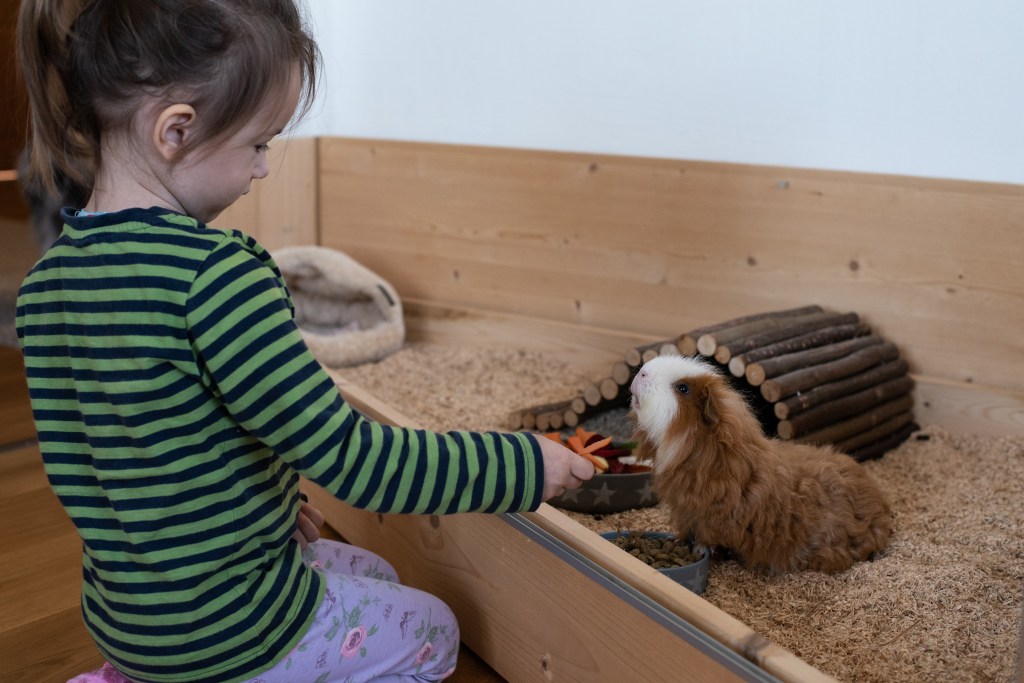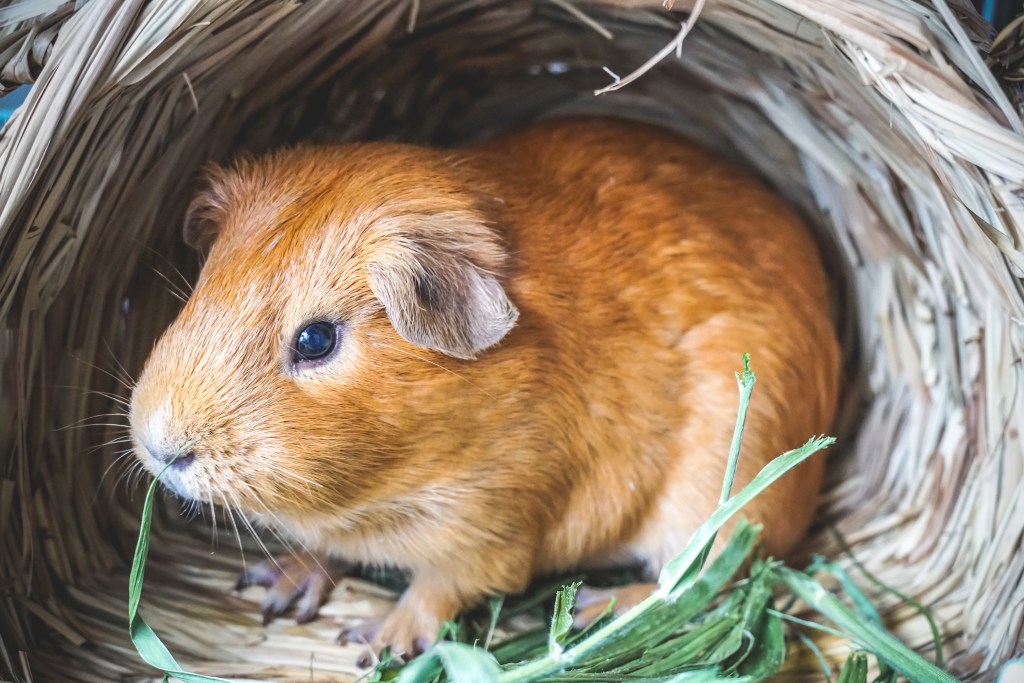As a first-time small pet parent, you may not be prepared for the sticker shock that accompanies the little guy. You might pick one up on a whim or adopt an animal in need only to discover that this critter costs big bucks to care for. While the cost typically doesn’t add up to the same amount you would spend on a dog or cat, you should still budget in advance for your new guinea pig, and keep an emergency fund on hand. Between the cage, food, toys, vet visits, and pet sitting, you could wind up spending thousands of dollars over the course of your life. So, how much are guinea pigs? Here’s a closer look at what you can expect to shell out for your piggie.

Are guinea pigs good pets?
Lots of happy pig owners want to combat the notion that they are starter pets, but that doesn’t mean you shouldn’t add guinea pigs to the top of your list if you’re relatively new to the game. They’re affectionate, funny, inquisitive, and fairly clean when you help them with the process. Unlike hamsters, you might get some daytime activity from your guineas plus they don’t need nearly the space required for rabbits, making them an excellent in-between pet. Remember, though, that all rodents require a balanced diet, immaculate cage, and regular checkups, so they still do incur a fair number of expenses.
Are guinea pigs expensive?
We always recommend looking to adopt or take in a shelter piggy when you first start out. Many of them will already be trained and well cared for, so you can step in and keep them happy. When buying from a breeder or store, do your research and don’t be afraid to ask questions. Examine the beauties before taking them with you, making sure that they have bright eyes and clean cages. From a reputable source, you’ll spend about $50 or slightly less to bring home one piggy. But you can’t really stop there.
Should I get 2 or 3 guinea pigs?
Guinea pigs must live in pairs or herds. A solitary cavy will get depressed and might even stop eating or become lethargic. Luckily, twice the number of animals is not quite twice the cost, and you’ll have two flourishing creatures who entertain each other much of the time. If this is your first foray into pig ownership, you’ll probably want to stick with two and ensure you have that down first. You can always add a second cage to the mix and then introduce the pairs slowly, or have them meet once a day for playtime but live separately. They’ll enjoy getting to know new friends without having to sacrifice any of their limited space.
How much do guinea pigs cost?
We already covered start-up costs — budget about $50 per pig, so $100 if you’re purchasing a pair. Additionally, you’ll need a cage, water and food dishes, and accessories. Those you shouldn’t have to replace often (though guinea pigs do chew things, so expect to add new toys periodically). Then you’ll have the recurring costs like bedding and food with the occasional vet bill thrown in. Here’s how that breaks down.

Cage and Setup
Even though they’re small, your new herd needs ample space to roam. You’ll want to give them about 10 square feet of space and should expect that to ring up at $100 for a basic model. Then, add in their food dishes and probably a litter box, which will cost approximately $10 and $15, respectively. While the litter might seem like an added cost now, you will save lots in both bedding and cleaning time in the long run. Hopefully, you’ll top this off with fun things for them to play with and explore. Set your own budget for these extras depending on what you have left.
Food and Bedding
Your animals need food every day (of course) and weekly bedding replacement, with spot cleaning in between. That’s about $10 per week per pig. Remember, you will consistently supply timothy hay along with small amounts of pellets. Lastly, give your piggies small servings of fruits and veggies to snack on. The good news is you can grow those yourself or feed them from your portion. Make sure the fresh food is chemical-free.
Vet Visits
They’ll need to visit their veterinarian as soon as possible after you acquire them, but then will only need to go every year or so unless you spot a problem. Most vets count cavies as exotic pets which does involve a little more research to find the right doctor. Lastly, these guys often try to hide sickness as a survival instinct, which makes sense in the wild when running from predators, but not so much now. Keep a careful eye on them, especially their digestive system and energy levels for signs of a bigger problem.
Guinea pigs are worth the expense
Altogether you will pay about $350 in upfront costs and then about $1000 per year for two little piggies. A larger herd will certainly set you back more and this does not include things like pet sitting or carrier cages that will add to the total. If you have particularly healthy animals that live for a decade, that means spending about $10,000 over the course of their lifetimes. As we said, it’s not cheap to keep small pets, but it’s absolutely worth every penny in all the love they give in return.
Editors' Recommendations
- A simple guide to what to feed tadpoles in your aquarium
- Is my rabbit pregnant? 5 telltale signs you should know
- 3 reasons not to give pet rabbits, baby chicks, or ducks this Easter
- Looking to add corydoras to your aquarium? Here’s what you need to know first
- Why do guinea pigs chatter their teeth? It’s not a good thing




